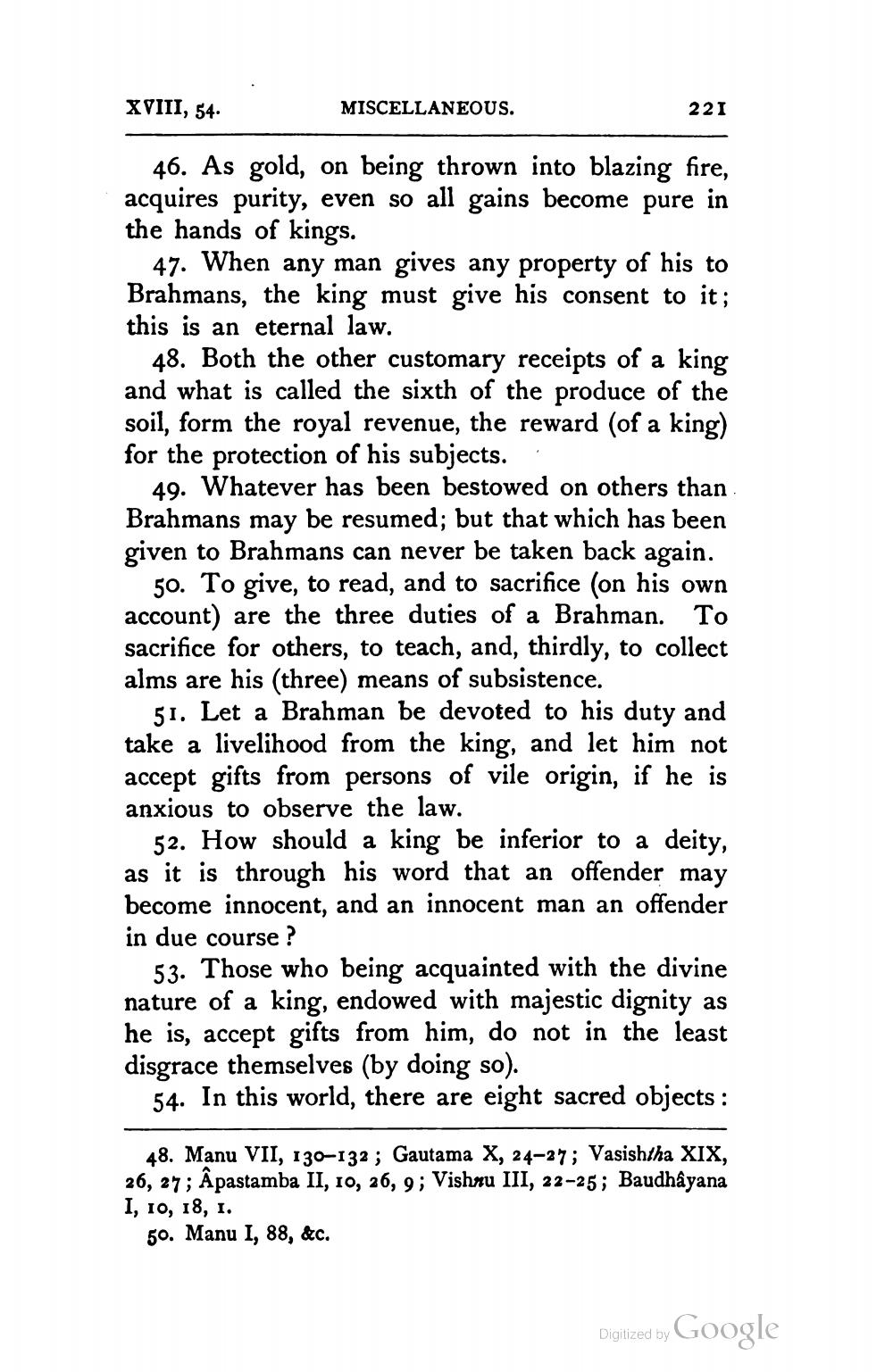________________
XVIII, 54.
MISCELLANEOUS.
221
46. As gold, on being thrown into blazing fire, acquires purity, even so all gains become pure in the hands of kings.
47. When any man gives any property of his to Brahmans, the king must give his consent to it; this is an eternal law.
48. Both the other customary receipts of a king and what is called the sixth of the produce of the soil, form the royal revenue, the reward (of a king) for the protection of his subjects..
49. Whatever has been bestowed on others than Brahmans may be resumed; but that which has been given to Brahmans can never be taken back again.
50. To give, to read, and to sacrifice (on his own account) are the three duties of a Brahman. To sacrifice for others, to teach, and, thirdly, to collect alms are his (three) means of subsistence.
51. Let a Brahman be devoted to his duty and take a livelihood from the king, and let him not accept gifts from persons of vile origin, if he is anxious to observe the law.
52. How should a king be inferior to a deity, as it is through his word that an offender may become innocent, and an innocent man an offender in due course ?
53. Those who being acquainted with the divine nature of a king, endowed with majestic dignity as he is, accept gifts from him, do not in the least disgrace themselves (by doing so).
54. In this world, there are eight sacred objects :
26,
48. Manu VII, 130-132 ; Gautama X, 24-27; Vasishtha XIX,
amba II, 10, 26, 9; Vishnu III, 22-25; Baudhayana I, 10, 18, 1.
50. Manu I, 88, &c.
Digitized by Google




